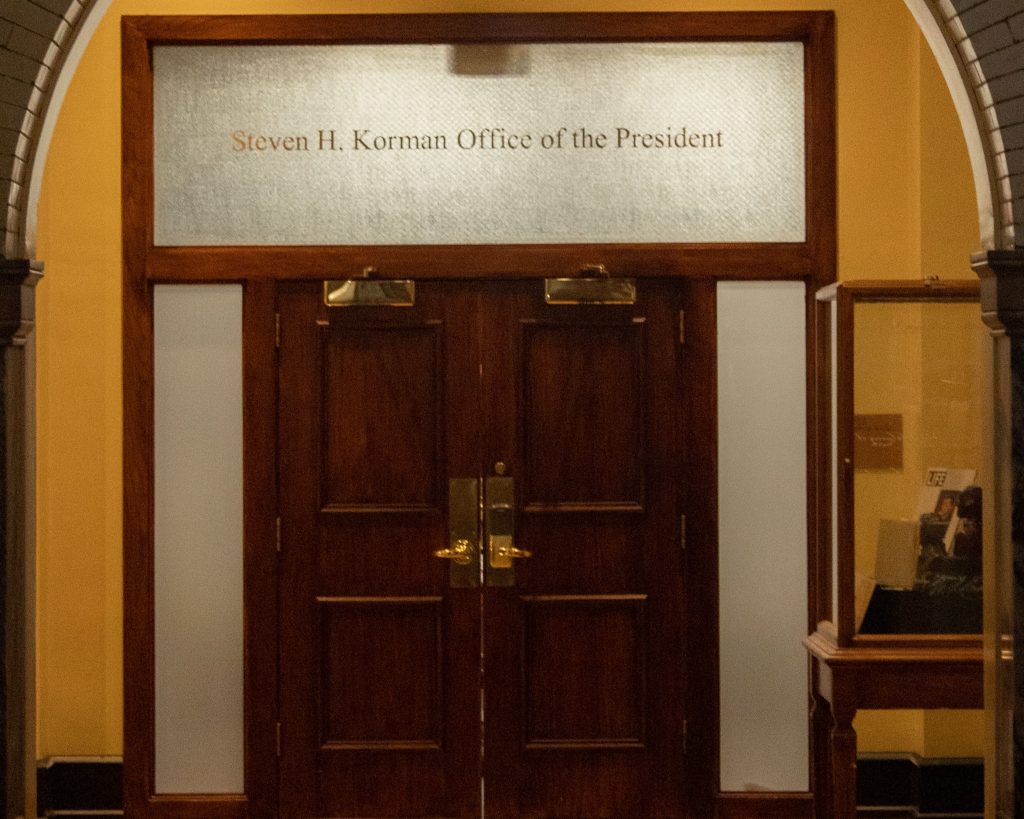
After President John Fry announced his departure to Temple University, Drexel University’s Board of Trustees named Denis O’Brien as Interim President. It is concerning that out of all people, the Board put its trust in a Big Oil executive who chaired the Energy Association of Pennsylvania and served on the Board of Directors for Independence Blue Cross, American Gas Association, Energy Association of Pennsylvania, Pennsylvania Business Council and Pennsylvania Economy League.
When choosing a permanent replacement for President Fry, the Search Committee should remember that running a nonprofit R1 academic institution that conducts groundbreaking research and educates the next generation is nothing like running a for-profit oil or health insurance company that puts profit before all else. As a primarily academic institution, Drexel requires the leadership of an academic.
President Fry was a businessman at heart. He received an MBA degree from New York University’s Stern School of Business and made a career out of management consulting. It is through this role that he became the Executive Vice President of the University of Pennsylvania before coming to Drexel.
Just this past year, Drexel generated over $1 million in graduate net tuition revenue, had $40.5 million in excess of budget, received $27.7 million in additional funding from the Commonwealth and exceeded grant and contract expectations by $3.9 million.
Meanwhile, tuition has not gone down, professors have lost their roles, Resident Assistants have been pushed to unionize and doctoral students get paid pennies. At the same time, President Fry became the 10th highest paid private US college president. As a reminder, this is supposed to be a not-for-profit organization.
While it is clear that Drexel’s finances are doing well, the same cannot be said for the people that make up the Drexel community. In the past year, the Triangle has reported on multiple signs of distress with the lack of helpful care for deep-seated diseases at the Counseling Center, Drexel’s controversial response to the pro-Palestine encampment, low summer quarter class options, mandatory payments to complete homework, unsanitary dining halls and residence halls and limitations on food in Mario’s Pantry. Anecdotally among students, I hear about co-ops getting more difficult to obtain, costs being too high, Drexel underpaying workers and jokes like “tuition can’t wait.” Drexel is also currently involved in a lawsuit with a former vice president and Chief Compliance and Privacy Officer, who is the attorney responsible for ensuring compliance with employment law at the University, for allegations of civil rights violations.
It is clear that Drexel’s main concern today is not with our finances but rather with how we think about the role of the University in student and employee activities. That is why the next president should not be someone with a business background but rather an academic who is familiar with how universities serve students and faculty. A professor who has spent their entire adult life in universities would best understand how various university departments and policies come to affect core parts of a university’s mission to help students learn, both inside and outside the classroom, and support faculty, graduate students, undergraduate students and staff in conducting important research that advances society.
Faculty members often rise to administrative positions like department chair or dean. They even hold high level executive positions like provost. There is no reason to believe that academics are any less qualified than businesspeople. In fact, they are likely to be more qualified due to their intricate understanding of university systems and respect for shared faculty governance that the University Charter mandates.
It has not escaped my notice that the Search Committee consists of a singular student, two deans (one of which is the dean of the LeBow College of Business), the chair of the Faculty Senate, the interim president (who served as a trustee) and a bunch of trustees, most of whom come from business backgrounds. Search Committee Chair Mike Lawrie is the CEO of a private consulting firm and manages a private equity fund. The Search Committee will likely be heavily biased in favor of applicants with strong corporate backgrounds, and I sincerely hope that the committee members can look past their bias to arrive at the best candidate possible because it is time to have top leadership involved in improving Drexel’s academics.


